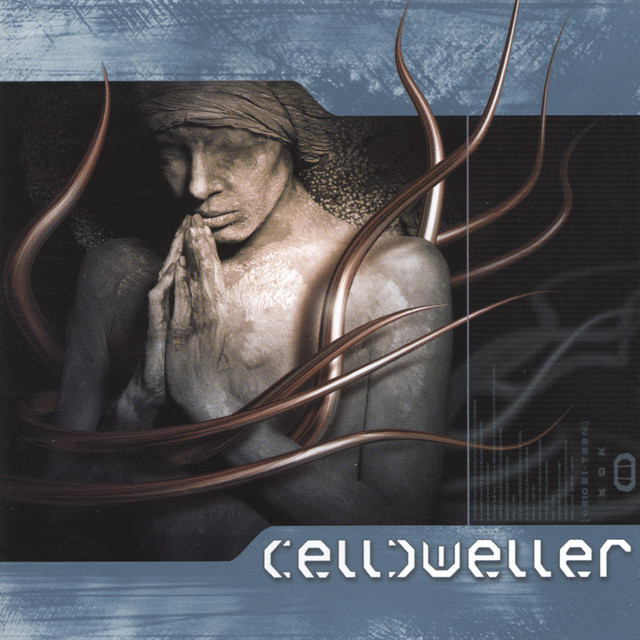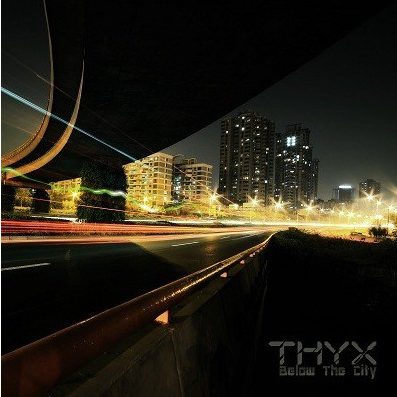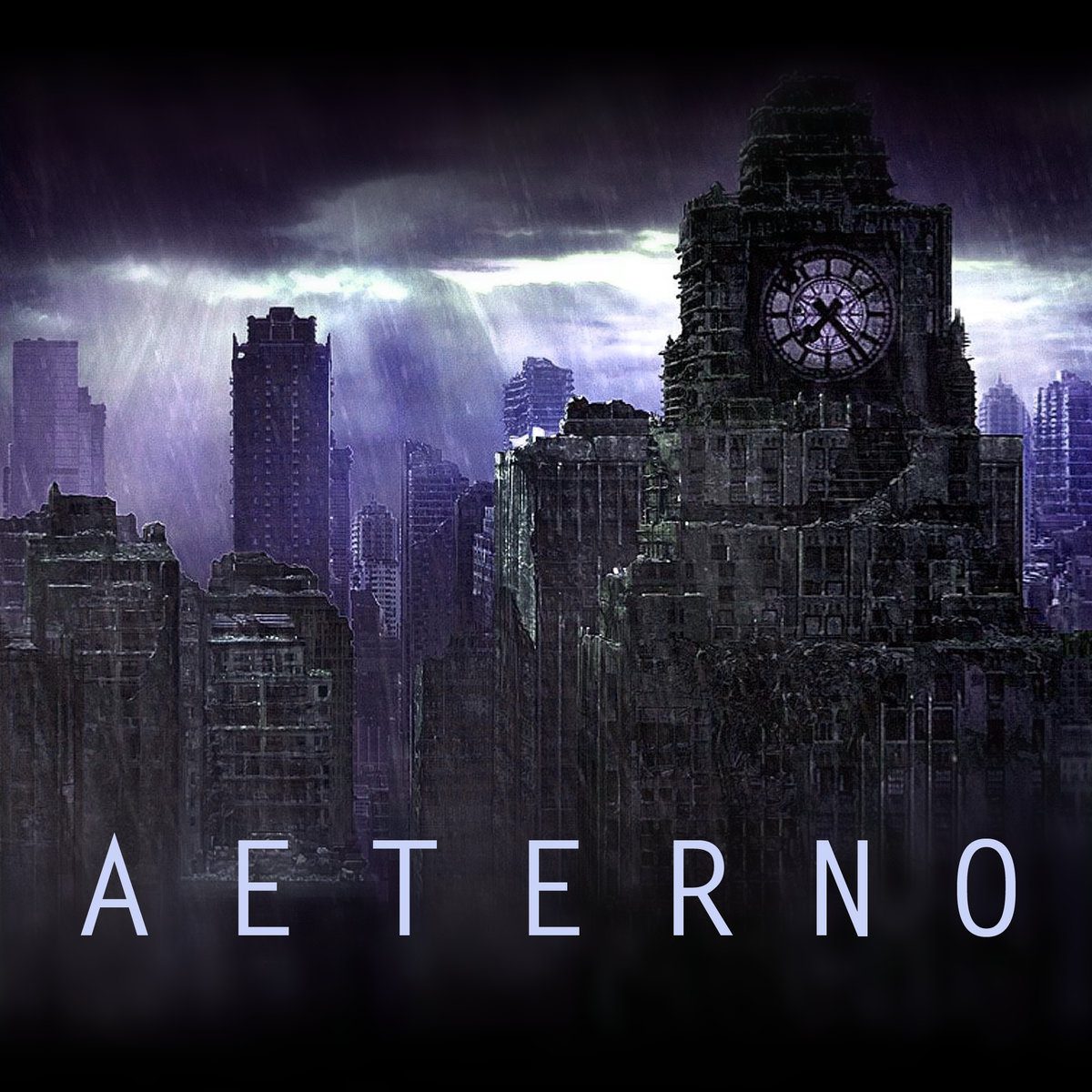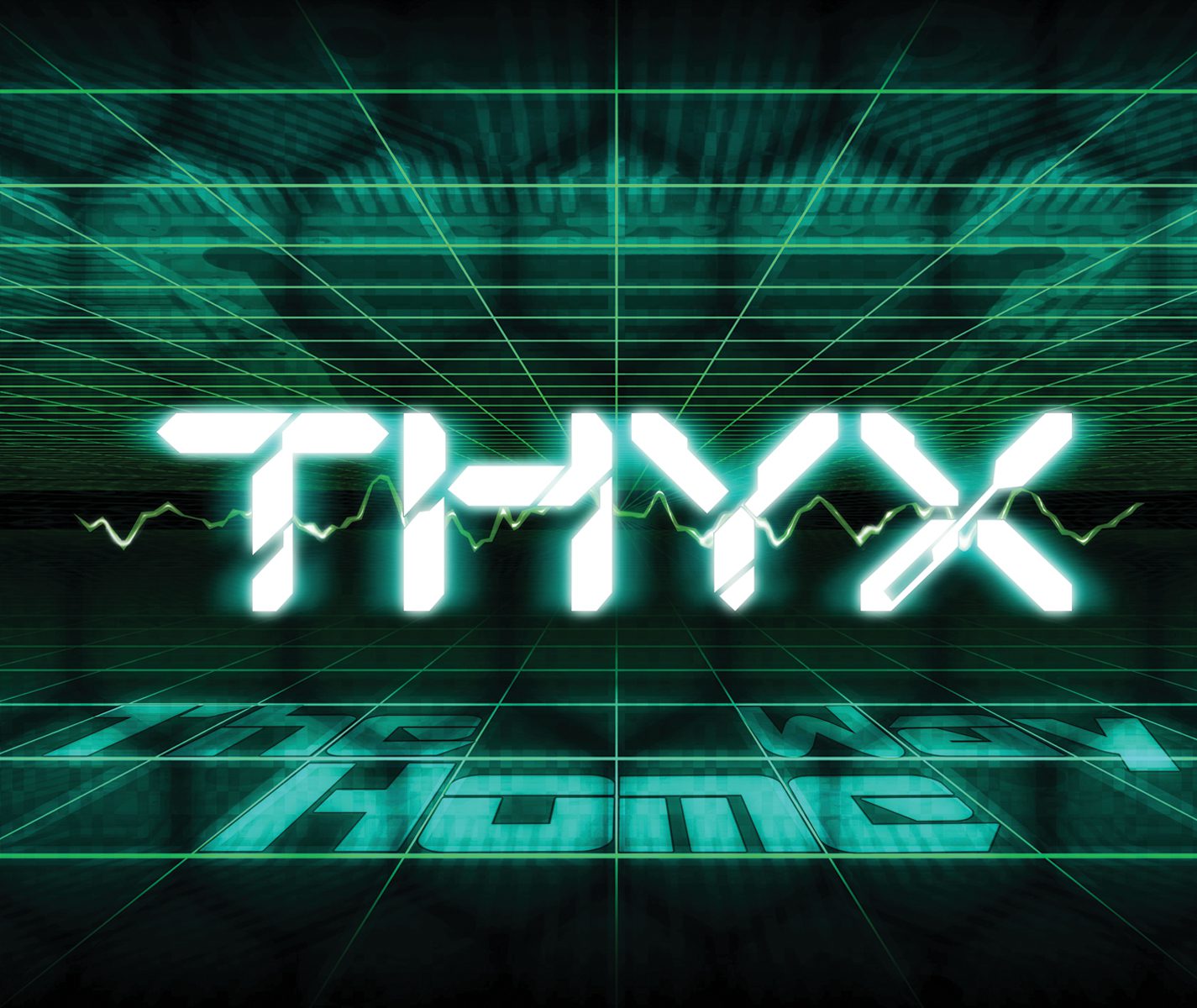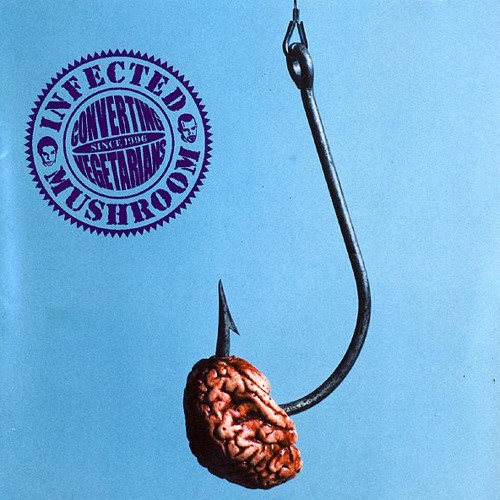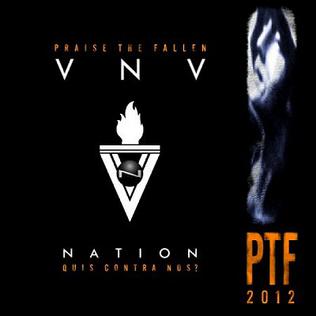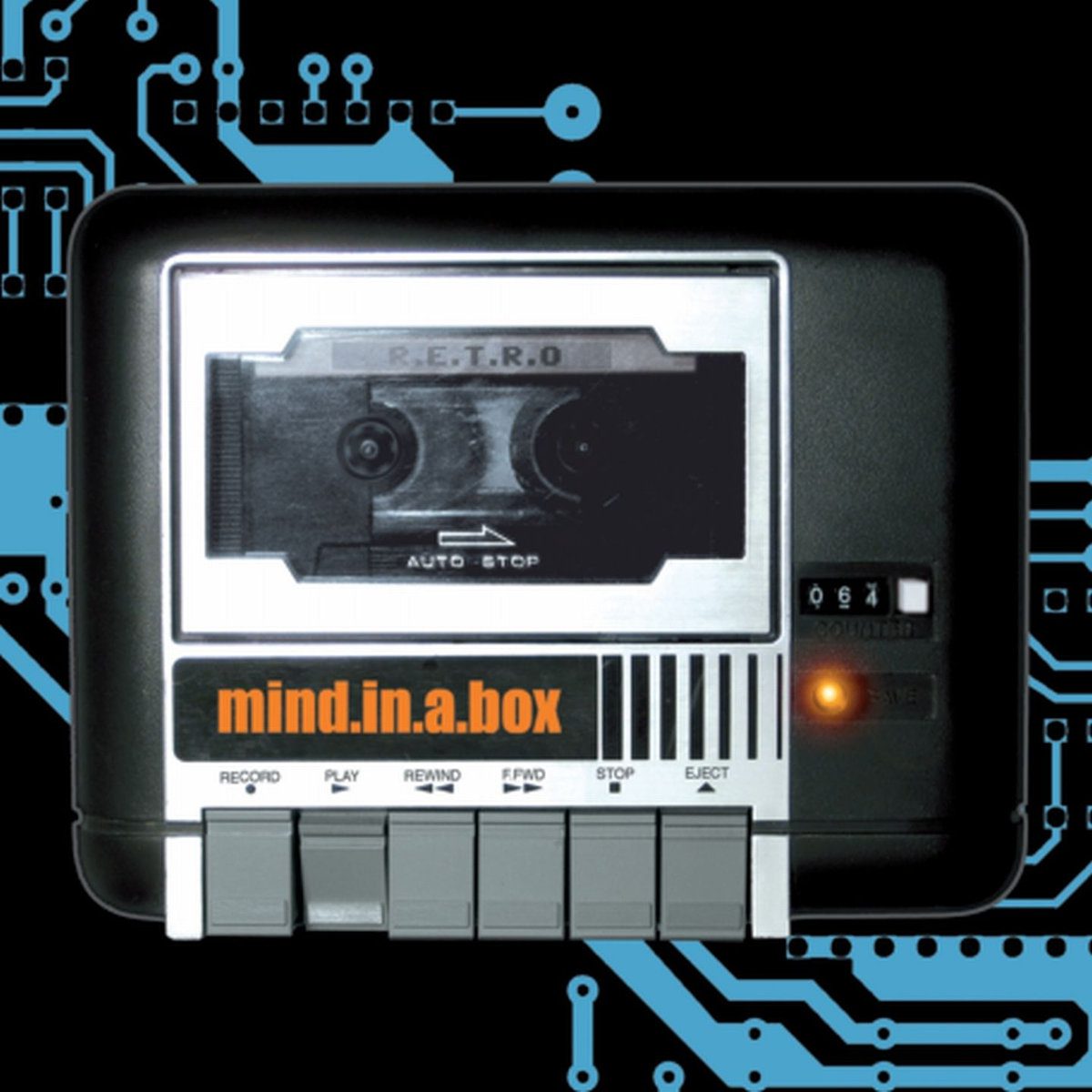Album Links:
Bandcamp (original album and bonus tracks only): https://celldweller.bandcamp.com/album/celldweller-10-year-anniversary-deluxe-edition
Soundcloud (original album and bonus tracks only): https://soundcloud.com/celldweller/sets/celldweller-10-year-2
Spotify (full album): https://open.spotify.com/album/1gStSHuxB1XHGBzPDQHU9w?si=-zbQHTIATBy5VEUPoeVCGw
Youtube (original album and bonus tracks only): https://www.youtube.com/playlist?list=PLnUoeQ45vgmtIWyb40DiweCdge84Y282Y
Introduction: I spent plenty of time introducing Celldweller and the rest of Klayton’s aliases last week, though most of them aren’t relevant for this review. Well, Celldweller is relevant because it’s his album, and it could also be argued that the Klayton’s Alias makes an appearance as there’s a good handful of songs here saying they’re remixed by Klayton (which is just a fancy way of saying it’s a VIP or rework). Besides, these Klayton remixes don’t quite match the modern purpose of that particular moniker.
That being said, I do believe that this review will be slightly shorter than the last as there are indeed some remixes (meaning no lyrical analysis required) as well as some “demos” (which are a bit more bare-boned).
More in depth explanations of what’s going on in this album will come in due time.
Celldweller & Tom Salta – Ghosts (7): Welcome…
To a new beginning…
Let’s begin this bonus content extravaganza with Ghosts, Celldweller teams up with another artist to create a new combination of rock, electronic AND orchestral. That last bit is likely thanks to Tom Salta an artist that has released on Klayton’s FiXT label under the name Atlas Plug. Oh, and I think he might have made the soundtrack for a video game franchise called Hola or something. I don’t know, it has a lot of guns or something. I’m a music lover, not a gamer.
I do feel that there’s a bit of overlap between the Tom Salta & Celldweller styles, so it’s rather difficult to parse exactly what other elements he’s responsible for other than the assumption that Celldweller doesn’t usually dip into the orchestral stuff like this. The breakbeat bassline sections are a bit more his style. I had guessed for a second that he might have been responsible for the clean vocals on the song, but I think that was just my bias of seeing a feat. Rather than an & and expecting an extra vocalist (I always change feat. to & in my reviews so I guess that confusion doesn’t translate well here and just makes you even more confused). The vocals do sound a little bit different, but that could be my mind playing tricks on me. I don’t believe that Tom is really the singing type from what I know though, but I could be wrong. It’s kind of hard to uncover this information. Perhaps I should just go with the assumption that there is no information not uncover.
Well, I’ve talked about Tom long enough and I think I’ve summed up the music well enough with the little bits I’ve scattered through the Tom discussion so perhaps I can speak of some lyrics now. The lynchpin to discovering what this song is about is clearly the identity of these ghosts. I’ve taken some time looking to see if I can scrounge up some meaning other than the enjoyment of talking edgily about dead things, but it’s proven difficult to come up with a definitive answer that feels like it tightly fits those lyrics. I want to say the song has to do with facing ones past regrets that threaten to haunt us, but I really feel like I’m reaching for that one and when I feel like I’m reaching, then maybe there’s nothing there to begin with.
Until one of you reads this and it easily dawns on you what the meaning is and then you message me on Twitter or something to tell me how blind I have been to the message that these ghosts are presenting. Don’t get mad at me. Ghosts are invisible. How am I supposed to see?
Celldweller – Uncrowned (6.75): Drum. And. Bass. One of the fastest subgenres of EDM and this song clocks in at about 190 BPM which is an exceptionally speedy tempo, even for DnB. The basslines and guitar riffs do a pretty good job of keeping up with the energy. There could be a bit more variety as much of the song feels rather similar with the same basslines and guitar riffs over and over again, but I think the overall speed of the track (plus the occasional slower portion) makes up for that lack of variety.
As for the lyrics, well, they’re a bit iffy. Remember Under My Feet and how the last line of that song was incredibly spiteful wishing for another’s downfall. Yeah that spiteful ending encompasses the entirety of this song. Whether or not this makes the lyrics worse or better than Under my Feet is debatable, as more focus on the disliked lyrics is logically worse, but I feel part of what made Under My Feet’s ending so bad is its context. The entirety of the song before that point had been about Celldweller rising out of the pit he’s in and so the spiteful ending was incredibly unfitting to the mood. This song has no such context and so the entire message of the song is pride goeth before the fall and you and your legacy will inevitably fade away from eternity. And while I think I’d prefer something a bit more inspiring, I think I’m still able to enjoy the edgy side of these lyrics on their own.
Celldweller – Tragedy (6.25): So, sometime in the years approaching 2013, Klayton (the man behind Celldweller in case you forgot), was listening to some music back from the late 70s and as he listened to Bee Gees, he thought to himself “huh, this song is good, but you know what it needs? Some gritty guitar riffs with a darker tone.”
And you know what? It turned out to be a pretty good idea. It’s not top notch Celldweller. I’d say it’s actually rather par for the course when it comes to this album: mostly rock, with the occasional hint of electronic. There are some parts that stand out such as the rising and falling of the arpeggiated chord progression as the bridge transitions between the last two choruses. An ok melody there too. But for the most part, this song just sounds like Klayton just wanted to have a little fun creating a simple Celldweller spin on a song he enjoyed.
As for the lyrics, they do run the uncomfortable route that is a break-up song. I mean, it’s a better theme than the toxic relationship, perhaps even the correct course of action to follow a toxic relationship, but I still rarely find the theme to be really all that enjoyable to listen to and discuss. The best a break-up song can do is rise above the rest and actually be mature instead of the childish whining and complaining I see in many break-up songs. This one is roughly in the middle for me. Oh, Celldweller is definitely showing some bitterness towards the deteriorating relationship, but it’s all internal turmoil. There is no fault placed in the other’s hands. It’s all him and his bleak depression that’s creating this world of tragedy. It’s not ideal, but it’s realistic and certainly not an annoying line of reasoning. Would be nice if Celldweller could find a way to overcome this tragedy that is taking over his life, but sometimes tragedy is all we see…
And by Celldweller I mean the Bee Gees because they were the ones who originally wrote this song. It sounded a little bit different back then.
Celldweller & Styles of Beyond – Shapeshifter (6): Of all the bonus track I’m reviewing today, this one is the most popular. In fact, it might be the only one of these tracks to even hold a candle to Switchback and Frozen. But that’s the consensus of the general public (which I more often than not disagree with). But regardless of how much love I think Own Little World deserves more attention, where does Shapeshifter stand in relation to the two powerhouses I mentioned? Somewhere in between…
The first thing you might notice about Shapeshifter is how different the vocals are from the rest of Celldweller’s work. Well, the obvious explanation for this is found right in the credits of the song: Celldweller AND Styles of Beyond. Now, I’m not very well versed (not versed at all actually) on this artist’s discography beyond Shapeshifter, but I believe it’s a safe bet to say that he’s the rapper that gives this Celldweller track a unique twist. But is it a twist I like? I am quite picky with my rap after all as lyrical content is more important than ever with such a genre.
So hey, that will work as the perfect segue to trying to decipher these lyrics… It’s ‘bout cars. There’s nothing deep to this. 500 words over three and a half minutes, and it’s all about outracing the cops while racing other sweet rides (not sure what this has to do with shapeshifting, but I’m just going to roll with it). Not exactly what I’m looking for, but I don’t really dislike it either. Really, it just feels like the type of rap you’d slap on top of a beat with above average intensity. And seeing as the intense beats are quite common for Celldweller, it seems that this rap fits perfectly.
Speaking of the intensity of Celldweller, now may be a good time to appreciate the striking guitar riffs and the few subtle electronic elements in the verses. I really enjoy these subtleties the best as they provided that perfect extra touch to give the verses a tiny boost of variety. There’s also the overload of guitar in the chorus, but I’m not as much of a fan of those parts of the song. Same goes for the brudge to a lesser extent.
In the end, I’m feeling rather neutral about this one. Nothing about it is bad, but there’s not much here that’s really great either.
One last thing I forgot to mention when talking about the vocals would be Celldweller’s screaming in the chorus and the bridge. Not my favorite side of his vocal style but it does suit the song. But the real reason I want to mention it is because I want to introduce one common reoccurring issue I have with certain lyrics. Oh, it’s not any fault of the song. It’s all about my own mishearing the lyrics that is causing this odd and perhaps concerning issue. Until I reviewed the song today, I did not realize that the chorus was just repeating the name of the song. No, apparently my violent brain decided that Celldweller was screaming “DIE… JUST DIE!” From here on out, Shapeshifter Syndrome will refer to moments where I mishear lyrics and interpret them, to be much more disturbingly violent than they really are (though considering the tone of those vocals can you really blame me in this case?).
Celldweller – Goodbye (Klayton Remix) (7.25): Ok, so this is quite odd. Here we are about the quarter of the way into the bonus tracks. And we’ve come across this Klayton remix of a Celldweller song we haven’t heard before. First off, I find it weird that the remix appears first while the original version of the song isn’t played until the end of the album (excluding the demos which I shall also be reviewing. So, I’m reviewing the remix before the original, which I find rather uncomfortable to be honest
Also, Klayton is the same person as Celldweller so I’m not sure who exactly he’s trying to fool here as he does this several times on the album. The song is just a bit more electronic than it was before… later…
Ok, you know what, this whole nonlinear thing is really messing me up. Celldweller broke the rules by putting this song earlier I the track listing so I’m going to break the rules and head on over to the last song on the album before coming back here to review the remix. I’ll be right back.
Ok, I’m back. Let’s take a look at the remix of Goodbye after reviewing the original. I shan’t be long because I’ve already done the little analysis this song has to offer over there so I’ll just skip that, so you’ll have to wait for it (or read ahead since this whole thing is out of order now). But now that we’re here, we can talk about the more electronic version of Goodbye, my preferred version.
Sure it drones on a bit at the beginning, with only a bit of chopped up vocals and some drumbeats, but once the song gets past the first minute of that droning, Celldwelller’s scream allows the song to go up a notch with the fast-paced DnB that dominates much of this song. Complete with some bleeps and bloops here and there, a few great basslines and of course some chopped up vocals of the titular line of the song. There’s some full lyrics starting midway through the song, but they’re really a footnote in this experience of Celldweller’s strength of combining electronic basslines and guitar riffs.
This song has the same existential strengths as the original but ends up being one of the best bonus tracks of this album due to the incredible improvements on the instrumentation and tone. I’d talk about those existential strengths here but I’m going to talk about them later in this review (or had talked about them earlier today as I am writing this. Time travel is confusing.).
Celldweller – The Last Firstborn (Klayton remix) (7.75): Another occurrence of Klayton remixing a song that he’d originally produced? We’re going to see a good few of these today. Like with the remix of Goodbye, Klayton fully embraces the more electronic side of the song. From the very beginning he uses the same arp that dominated the more electronically focused parts of the song. Except without the strong drumbeat, the entire mood has been changed from its original energetic intensity to a developing sense of mystery accentuated by the use of distorted vocals.
About halfway through the song the guitar finally breaks through, bringing its song to its energetic glory. Everything here gets more powerful. The drums are no longer distant. The bassline has a harsher more prominent vibe. The arp has gone from subtle and mysterious to a much brighter sound filled with the energy that the original song had. Overall, this song has some great development in its mood as it transforms from its mysterious cryptic style to a briefly more energetic focus.
The lyrics are thankfully sparser and many of the more violent lyrics have been removed from this version of the song. We still have the description of a possible murder scene, but without the bleak and depressing context, the scene feels no bloodier than some of the edgier songs I’ve reviewed.
So yes, definitely a massive improvement. Though I think the original would still have been better if the lyrics were absent… Man, wouldn’t it be nice if that were possible.
Celldweller – Frozen (Copy Paste Repeat remix) (8): Oh wow. This is a mess, but it’s the good kind. Copy Paste Repeat completely tears apart the song and reorganizes it into a completely different chaotic mess of patterneless drumbeats, harsh basslines and vocals chopped beyond anything else on this album. There is a small portion in the middle that allows the original chorus of the song to play without any interruptions, but the chaos is always lurking in the background, ready to strike as soon as the chorus ends, taking the chaos to new levels unheard of. And while I shouldn’t expect anything clean from thsi sound, the ending of this song is so glitchy and rough that I still thought my headphones broke when I first listened to it.
Oh, and once again, like the last song, the vocals I like less (the overly sexual ones in this case) are eliminated from this version, leaving only the feeling of being frozen in time, and since I like time shenanigans, this one’s going to get a good solid rating from me.
There is no good way to review this song, but I’m perfectly content just sitting back and letting the perfect chaos that is this track fill my ears.
Celldweller – Switchback (Klayton remix) (7.25): And welcome back to Switchback. There may just be the one Klayton remix this time around (unless I’m forgetting something, which according to this addendum from my future self, I am) but trust me. We’re going to see a lot of Switchback in the future. Not any time soon likely, but I promise it will happen.
This Switchback remix starts out quite similar to that Copy Paste Repeat song from last time what with the glitching around and distortion of the vocals, but Celldweller hasn’t truly caught the Copy Paste Repeat Chaos, it’s just for the first three seconds of the song (though there are a fair amount of vocal chops), the rest is an entirely electronic version of the iconic Switchback. There’s still a good influence from the original with its bassline, but it’s been distorted into something new with much of the rest of the song focusing on adding a few new electronic elements, foregoing the rock entirely (ok maybe a guitar riff here and there, but that’s almost completely covered up in the background, I almost didn’t notice it until at least the third time around this song today).
However, while I do appreciate the consistent electronic enjoyment, I will admit that this song only just barely gets by with having enough variety. The drumbeat has a couple of switchups but for the most part it’s constant (which isn’t bad, but it’s teasing me with those syncopated portions). There are a few different basslines in there, but they don’t go through them and interchange them nearly fast enough. I now I’m probably being too picky, but a 7-minute song must do its best to capture the attention of the listener with such a variety to justify its length, and if it weren’t for the section where the first verse gets a spotlight, I’m not sure if I’d have found this song interesting enough to consider to be on par with the original.
I’m probably being too harsh, this song is still quite enjoyable (as all Switchback songs are), and I think it’s a fun spin on the original. I’m not quite certain which one I prefer as this song is more consistent but doesn’t quite measure up to the high points of the original. But both are fun tracks, and both deserve a good rating.
Celldweller – Atmospheric Light (Demo Redux (6.75): Hmmmm… a demo. These are often slightly lower quality than the normal tracks as they’re essentially discarded tracks that either weren’t good enough or didn’t quite fit with the albums they were produced for, and so they got relegated to this collection of bonus tracks.
As the title of this song establishes, the music of this song has a bit of an atmospheric feel to it, fading in at the beginning to reveal the main melody of the song and then later fading out with the same exact melody. This melody is present throughout the entirety of the song in between, only interrupted by the occasional guitar riff and drumbeat (and those drums are really just there to accentuate the guitar. This is definitely the most minimalistic song on the album, only giving music that’s absolutely necessary for the song to progress.
I feel that the lyrics are somewhat simple as well. The focus of this song is the same focus as many of the songs on the original album, breaking ties until one is completely alone and isolated and facing one’s regrets. Not a great feeling as I’ve explained several times in the first part of this review. This one adds in something a bit different alluding to Celldweller’s mother and his hope that she will accept him as he returns to his roots, something new for now, albeit I believe this theme becomes a bit more common in later albums.
Celldweller – Own Little World (Blue Stahli remix) (9.25): It’s no secret that I love Own Little World (and if you didn’t know that then you clearly didn’t read part one of this review which begs the question of why you’re here), I don’t believe I need to go into what I believe to be the most positive isolation on Celldweller’s debut album. I explained plenty of that this week. What I have to do this week is figure out how this Blue Stahli remix compares to the original.
Blue Stahli is an artist from the early days of Celldweller’s own label, FiXT. This band that also specializes on the electronic rock fusions, though I believe Blue Stahli falls more onto the electronic side, this time especially. It begins with a half time varied rock verse accompanying Celldweller’s chopped up vocals (more chopped than in the Switchback remix but not quite as chopped as the nearly unintelligible Copy Past Repeat remix). The bassline here is absolutely exceptional.
The song constantly changes from that point onwards though, getting better with each change. The first two choruses focuses on a more upbeat syncopated vibe accompanying my favorite lyrics on the album. And while the second verse is quite similar to the first, after this first formulaic half of the song, everything changes.
First off, we have to return to those vocal chops with some great electro bassline stabs. Which quickly transforms into a new more melodic portion as the song sounds like it’s about to come to a conclusion.
But Blue Stahli isn’t done yet. He aims to “Break it down” with a build-up from nothing, an element which has up to this point, been completely absent from the album. Taking a step back with an acoustic guitar and a soft drumbeat that I want to describe as crunchy, the song rises up, drops out and then immediately returns with van upbeat version of everything we’ve heard so far. It’s here that the song truly reaches for its conclusion, leaving me wanting more of this fantastic remix.
And so, I’ll listen to it again.
Celldweller – Shapeshifter (Klayton remix) (7.25): Klayton asked a question: What if Shapeshifter was even more aggressive and intense? And so, he decided to answer his own question and make Shapeshifter just that in his now commonplace Klayton remix (despite the redundancy of the idea). The rap and screaming chorus have retained the same energy as they’d had before, but all the music surrounding them have been kicked up several notches. Much of this is thanks to his increased blending of electronic elements into this version. Much of the verses are filled with small subtleties, especially in the verses. Actually, throughout the song there’s an extra rapid bassline shoved in the background that gives an extra drive to the verses along with some good ol’ syncopation. This eventually develops into a more high-pitched synth that stands out a bit more, but it still has the exact same effect. Take what’s there and make faster. Make it more intense. Make this race from the cops along with other sweet rides the most intense race ever rapped about.
Really, that’s all there is to say.
Celldweller – Goodbye (6.25): Ok, so I’ve just come over here from the middle of reviewing the remix of this song because the whole order of things bothers me so I’m going to be doing this as nonlinearly as Celldweller. Except I’m going to make sense and review the original Goodbye first.
Goodbye, on the surface level, seems to have an intense focus on the rock side of Celldweller. However, upon listening to the song a few more times, I’ve begun to notice that there’s a bit more electronic elements than I’d originally accounted for. In fact, other than the guitar that starts about twenty-five seconds in (and then proceeds to make appearances throughout the rest of the song), there really isn’t much here that isn’t electronic except for maybe some of the drums, and even then, there’s some more upbeat drum patterns in there that seem more organized by a computer rather than played organically. I’m not sure why exactly I found the main bassline to sound less electronic than normal, but now that I listen to it more and more, the less it sounds like a guitar and the more it sounds like a more like it was generated on a computer (which to my tastes, is preferable anyway).
The song has some decent development, following the typical journey of calmness in the beginning to full throttle intensity at the end (I just reviewed Shapeshifter so the car metaphors seem to be sticking with me). This one bounces back and forth a bit more, becoming immediately more intense in the vocal portions, though even with its wavering up and down in intensity, I feel that overall, the song does still climb steadily towards the maximum potential this song has to offer.
As for the lyrics, Goodbye is about the never-ending passage of time and how every single moment in our life is consistently bidding us farewell as the next moment comes into our life. Other than that, there really isn’t much to say about these lyrics. There are some implications that the current moment of clarity may be the key to trying to figure out one’s purpose, which is interesting, but I’m probably self-projecting so maybe I should just leave it at that.
Alright, I’m heading back to the remix now.
Celldweller – Waiting (Unreleased Demo 2005) (6.25): And so, after saying Goodbye, you’d think we’re done with this part of the review. You’d be wrong. We still have 5 demos and a remix to finish up. Here’s another demo that I quite enjoy as far as the music goes. you likely know me well enough to determine that “as far as the music goes” means I find the lyrics questionable, but we’ll wait on those lyrics for a bit. First let’s enjoy what the music has for us.
The lyrics may be questionable, but the music is definitely one of the faster paced demos we’re going to go over. Really, that faster pace is half of the reason I’m enjoying this song (notice the slight bit of syncopation as well, you know I love that combination). Now, along with this quicker pace, there isn’t so much to go over as much of it is the same combinations of a bassline and a bunch of guitar riffs. At least for most of the song. Celldweller, has a tendency to relegate a good chunk of the fantastic variety to the bridge, this one including some nice strings (also in the outro), an acoustic guitar (also in the intro), and a dash of the most intense of the heavier distorted guitar (also present for pretty much the entirety of the rest of the song).
Alright now to the vocals and the lyrics they bring to the table. First off, before we get into any of the words sung in this song, I really want to mention the odd feeling that I don’t quite recognize the vocalist. I know there’s at least a 98.6% chance it’s Klayton (otherwise someone else would be credited), but it just sounds… different. I’m probably just slowly losing it as I have been for the past two decades or so.
The lyrics are a much simpler issue. Much of the song is just Celldweller reminding us that he’s still waiting. For what? Well, the rest of the lyrics suggest that it’s for another person who is taking the path of least resistance (for themselves) and letting Celldweller down in the process. Though he is simultaneously begging for more time to answer a question. So that’s just a confusing mess of who’s waiting on who. Maybe it’s a conversational song, but that isn’t made very clear.
Still, despite the lyrical confusion, I do find myself enjoying the song. Just not as much as I could if it had better (or no) lyrics. I’d like for there to be an instrumental version of this, but I’m afraid I can’t do the joke that I’ve done with The Last Firstborn and Frozen. There is no instrumental version of this.
Celldweller – 06-06-06 (Unreleased Demo 2006) (5): Ah yes, the day everyone panicked because the devil and tons of people from every artform aimed to release creepy demonic edgy stuff on that day because of the mark of the beast. Or you could put Elvis lyrics in there?
Ok, to the song’s credit there are still some non-Elvis stuff in there. There’s also a few violent lyrics about how Celldweller is going to beat you to a fleshy pulp. So, I’m not sure how that all fits with the theme of Satan. At least I can put lyrical analysis off the table for this one. How’s the music?
It’s alright, but I never really felt there was much notable for most of the song, especially in the choruses. At least there was a little bit of variety in the verses with the bassline, but the rest of the song doesn’t really matter all that much to me.
I’m thinking this song is truly average.
Celldweller – Waiting for so Long (Unreleased Demo 2006) (5.75): Interestingly despite the fact that he’s waiting for so long, this song is a third of the length of Waiting. In fact, if it weren’t for the Cell songs, this would be the shortest song on the album. And a simple one at that. One drumbeat. One bassline. One melody. One line of lyrics (ok two actually but still). This song is so simplistic I have absolutely nothing to say. Thankfully it’s short so the repetition isn’t too bothersome.
The song is a bit above average, but it doesn’t bring much to the table.
Celldweller – Blood from the Stone (Unreleased Demo 2005) (4.25): This song is about a doomed relationship. Yay. Celldweller reveals to his soon to be ex that they aren’t compatible and they never will be because Celldweller is doomed to an empty life with no relationship to speak of. Well, geez stop whining about such a bleak outlook. Not to mention you went into this relationship with pessimistic expectations (Which could be the self-fulfilling prophecy that causes your problems). You’ve clearly got some personal issues you need to work out before you embark on a relationship, because it will never work if you go about it that way.
Ok, enough on that. The music outside of the lyrics is actually good. Starting out with a beautiful combination of piano and acoustic guitar is a lovely beginning. It eventually builds up into a heavily rock focused chorus with some decent melodies. Nothing stellar but decent. It does have a good progression to it and the dynamic between the piano and the harsher guitars (especially noticeable in the second verse) is definitely my favorite part of the song. Overall the music in this one is pretty good.
But then again, there’s the lyrics which make him such a whiny brat that I have to give this song a lower rating than the nonexistant instrumental of it deserves.
Celldweller – IRIA (Unreleased Demo 2005) (7.75): Out of all the demos, this song sounds the most like the Celldweller I know. Some heavy rock to match some nice electronic influences. This actually feels like a Celldweller song, though it is admittedly quite close to instrumental. It has an occasional shout that makes me think he hasn’t quite figured out where this song is going (I could swear he’s saying “Words”) And then there’s the line “I remember it all” (or IRIA if you’d like to use an acronym), which serves no meaning without any context. But that’s fine. That just means the instrumentation has to hold up the track.
And boy does everything this song is make up for the lack of lyrics. This song truly fuses the electronic wonder at the beginning of the song with some great guitar riffs and solos, not to mention that lovely bassline that serves as the main electronic focus. The way it distorts as it moves between notes in the track is quite enjoyable. My favorite part of the song has to be the vocal portion. While not meaningful those vocals definitely add some extra energy when they’re present, or maybe it’s just because the guitar solos are giving their best work to back those vocals up. Either way, this demo definitely stands above the rest.
Celldweller – Switchback (No I’m Not remix) (8): Another Switchback remix? In my review? It’s more likely than I think. But this isn’t your ordinary Switchback remix. No, this remix is gloriously orchestral, accompanied by a choir of strings that progressively gets more intense as Celldweller sings on about how he can’t change the past moments he regrets. There are a few additional lyrics added into this version. Actually, if I remember correctly, those lyrics were originally subtracted from a previous version of Switchback that was made before Klayton polished the track and released his Celldweller debut. Well, they don’t really change the theme of the song or give any new revelations, so I guess it’s just a slight divergence from the norm (as if going orchestral didn’t diverge enough).
There really isn’t much particular to say about the music, as orchestral tracks are often good but really need to do something exceptional to stand out and make themselves worth talking about. I will admit that there’s a bit more of an emotional impact for these lyrics with the orchestral context, but that’s still not out of the ordinary. This song is simply a beautiful conclusion to today’s review.
Conclusion: The bonus tracks of this debut album are a mixed bunch, ranging from a few decent originals, a healthy number of great remixes. And some average demos. Is it a worthwhile addition? I’m going to have to go with a yes. There are very few bad songs here and there, but there also plenty of worthwhile additions, including a better version of my favorite song from the first third.
One more Celldweller review left before I give Klayton an extensive break.
We’ll see what words I have to say when Celldweller has none.
Final Score for Bonus Tracks: (6.75/10)
Final Score for Album so Far: (6.75/10)
122.75/18
118.5

